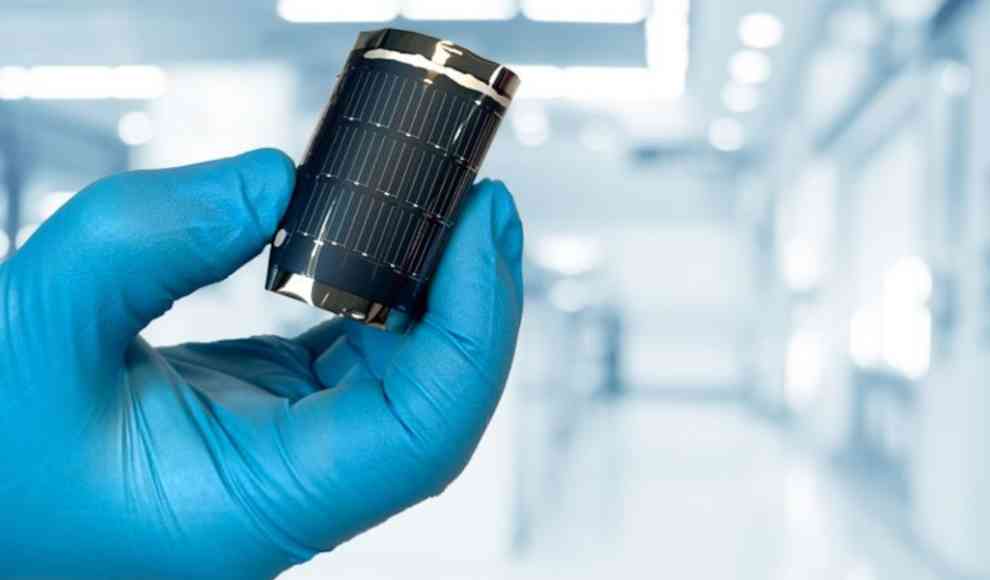A new breakthrough in solar cell technology has been achieved by scientists at the Eidgenössische Materialprüfungs- und Forschungsanstalt (Empa) in Switzerland. They have developed a flexible thin-film solar cell with a record-breaking efficiency of 21.4%. The solar cell is made of copper-indium-gallium-diselenide (CIGS) semiconductor material, which is deposited onto a plastic substrate using a low-temperature evaporation method. The researchers were able to optimize the efficiency of the solar cell by improving the alkali doping and semiconductor layer, as well as subjecting it to a combination of heat and light exposure. The CIGS solar cell has excellent durability and could be used in portable electronics, vehicles, and greenhouses.
The efficiency of rigid solar cells made of crystalline silicon and flexible solar cells made of polymer-based materials has been converging in recent years. This has opened up new possibilities for the use of photovoltaics, such as integrating lightweight and flexible cells into textiles and other flexible materials. The previous record for the efficiency of flexible solar cells was 20.8%, achieved in 2019. However, the Empa researchers have now surpassed this with their CIGS solar cell. The solar cell has been independently verified by the Fraunhofer Institute for Solar Energy Systems ISE in Freiburg.
The CIGS solar cell has the potential to revolutionize the solar energy industry, as it has a high efficiency and excellent durability. The researchers at Empa are already working with industry partners to develop a roll-to-roll manufacturing process for the CIGS solar cell, which could make it commercially viable. The solar cell could be used in a wide range of applications, from portable electronics to vehicles and greenhouses. The breakthrough in solar cell technology is a significant step towards a more sustainable future, as it could help to reduce our reliance on fossil fuels and mitigate the effects of climate change.










